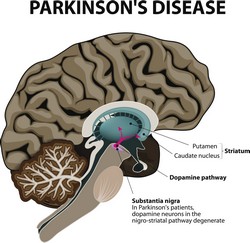Tailored brain stimulation to treat Parkinson's Disease
Deep brain stimulation (DBS) is an established treatment for essential tremor, Parkinson's disease and dystonia. DBS delivers electrical pulses to the brain tissue via implanted probes, thereby suppressing unwanted activity and restoring desired neuronal functions and quality of life. However, DBS lacks personalisation according to patient needs, leading to stimulation-induced side-effects. To address this, the EU-funded IMPACT (Improving the lives of Parkinson's disease patients while reducing side-effects through tailored deep brain stimulation) project proposed to develop a direct feedback tool to improve the positioning and programming of patient-specific brain stimulation implants. This system utilises patient-specific images to reproduce the patient's individual anatomy and deduce information relevant to therapy. Clinical partners contributed large amounts of clinical data, including medical images and brain recordings obtained from previously implanted patients. This information allowed scientists to associate specific brain areas with therapeutic and/or undesired outcomes and generate computational models that simulated the effects of brain stimulation in a patient-specific way. A research and development prototype was generated that incorporates recording hardware and brain images. Stimulation settings are compared to a large database of DBS case information, and the integrated system was successfully evaluated in the clinic to provide patient-specific information on DBS. Overall, the IMPACT system is expected to become an invaluable physician tool for tuning high-resolution DBS implants used to treat Parkinson's disease and other neurological diseases. This personalised brain stimulation will minimise side-effects and improve patient outcomes.
Keywords
Parkinson's disease, deep brain stimulation, tremor, electrical impulses, IMPACT



